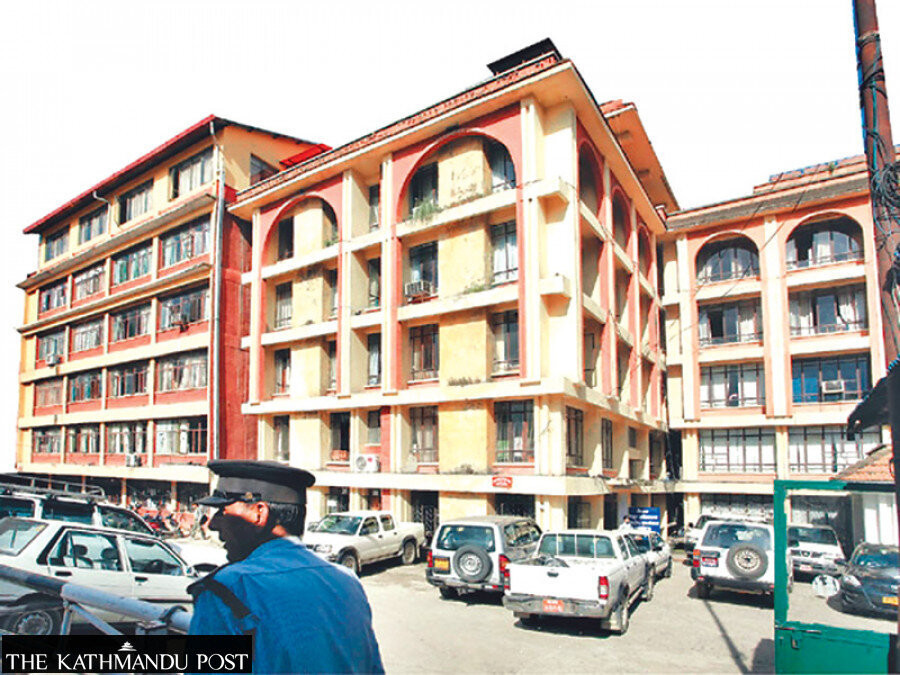National
Standoff over unpaid energy bills drags on
As both Nepal Electricity Authority and industrialists stand firm, government fails to break the logjam.
Purushottam Poudel
On October 10, the Nepal Electricity Authority (NEA) issued a 15-day ultimatum to 49 industrial firms that had not paid their due electricity bills for using dedicated feeders and trunk lines. The ultimatum ended on October 24.
The same day, Minister for Energy, Water Resources, and Irrigation Dipak Khadka told NEA chief Kulman Ghising that the issue should be discussed at the NEA board before action was taken against the firms, according to an officer at the ministry. In the meeting, Minister Khadka instructed that the lines not be immediately disconnected, adding that a long-term solution for the dispute should be found.
However, in the same evening, the authority disconnected power to 34 firms. After this, two of the firms paid their first installment of overdue bills on October 25, and their power was restored.
“Although the ultimatum was issued to 49 firms, six of them paid their installments, the case of seven firms are sub judice, and two are government agencies; therefore, the NEA only cut the power to 34 firms,” Chandan Kumar Ghosh, the spokesperson for the authority, told the Post.
Earlier, at the NEA board meeting, it was decided that the power would be cut if the firms could not pay their dues within three months. “It would have been disrespectful to disregard the board’s decision,” Ghosh said.
Following the power cuts, tensions between the government and the NEA chief Ghising have resurfaced. When asked why the NEA, a state agency, cut the power to the firms despite the government’s unwillingness to do so, Ghosh said the government had not given a written order.
“If the NEA board meeting had instructed us to refrain from cutting the power to the firms, we would have complied,” Ghosh claimed.
On Sunday, a group of industrialists met Prime Minister Oli and submitted a memorandum stating that the authority had disobeyed the Council of Ministers’ decision to implement the recommendations of the Electricity Tariff Dispute Resolution Commission headed by former Supreme Court justice Girish Chandra Lal.
“We are always ready to pay the dues based on the recommendations of the Judicial Commission,” the memorandum states.
Meanwhile, the industrialists, during their meeting with Energy Minister Khadka and Industry Minister Damodar Bhandari on Sunday, expressed their frustration over the NEA cutting off power to the industrial firms, and called for power’s restoration.
“Industrialists, during the meeting with the ministers, said they would pay their dues if the authority provided sufficient evidence to support its claims of unpaid bills,” Chiranjeewee Chataut, a spokesperson of the Energy Ministry, told the Post.
But the NEA spokesperson Ghosh claims that the authority had already submitted the required evidence to the parliamentary Public Accounts Committee (PAC), including detailed records of energy supplied to the firms through dedicated feeders and trunk lines, along with Time of Day (TOD) meter data.
As the dispute between the government and NEA chief Ghising continues, CPN (Maoist Centre) leaders have expressed their support for Ghising.
While addressing the party's protest rally in Kathmandu on Saturday, Maoist Centre leaders claimed that the government was considering taking action against Ghising for his decision to cut off power to the defaulting firms.
Shekhar Koirala, a senior leader in the ruling Nepali Congress, has also backed Ghising. While speaking at a party function on October 26, Koirala said the industrial firms should clear their dues.
“The country’s economic situation is not good. How can it function without collecting dues from the industrialists for their energy use?” Koriala said.
Earlier, in August, the NEA cut off power to six firms that had failed to pay the tariffs for using specialised feeder and trunk lines. For days, despite a written order from the Electricity Regulatory Commission and verbal instructions from Prime Minister Oli, NEA chief Ghising refused to restore power to those firms.
The NEA later restored electricity but, by that time, relations between Prime Minister Oli and Ghising had soured.
According to the NEA, industrialists owe around Rs8.25 billion-Rs6.65 billion plus a 25 percent fine. Initially, the authority estimated that industrialists using exclusive feeders and trunk lines for energy owed almost Rs22 billion. However, this amount was adjusted based on the recommendation of the Lal commission, which was formed by the previous government to resolve the dispute.
The commission formed in January to resolve the tariff dispute over dedicated and trunk lines submitted its report to the then government led by erstwhile prime minister Dahal on May 6.
Based on the commission’s report, the Dahal government adjusted the outstanding amount and collected Rs6.65 billion along with a 25 percent fine.
NEA spokesperson Ghosh says the regulations related to the NEA’s billing does not allow discounts, despite the commission’s recommendations.
“But when the government issued a similar directive, the NEA, by virtue of being a government agency, had no choice but to comply,” Ghosh told the Post.
As the NEA puts pressure on the firms to clear their outstanding dues, some have paid up, while many claim they will not do so until they receive the TOD meter data from the authority.
In response, earlier this month, the NEA provided the parliamentary Public Accounts Committee (PAC) with detailed records of the energy supplied to the firms through dedicated feeders and trunk lines, including the TOD meter data.
When the NEA cut off electricity to firms in August, CPN-UML and Maoist Centre lawmakers in the Public Accounts Committee engaged in a heated debate over the unpaid power bills.
The parliamentary committee received over 100,000 documents from the state-owned electricity provider including logbooks, invoices on amperes, TOD meter data, and specifics of bills issued to the industrial firms.
Earlier, in August, Prime Minister Oli and NEA chief Ghising had made conflicting statements against each other. At that time, the authority had cut power to some firms citing nonpayment of energy bills.




 13.12°C Kathmandu
13.12°C Kathmandu














